3-5 January 2024, Barberton, 43.33km
Bushwhacked R612
If there is a way to make a 44km day feel longer, I am not sure what it is. We are super tired.
Three sizeable climbs and 750 metres in elevation gain defined our day to Barberton. It is no longer hilly; it is mountainous. Very pretty, but very hard work.
We also had three punctures.
One of my worst fears on the bike is a burst tube, as opposed to the more usual slow loss of air due to a small puncture; particularly if you are moving fast on a downhill. When Charl cracked his head in Turkey in 2014, it was exactly because of a sudden and total loss of air on a fast decline. You lose control of the bike, and have no control over that. A fall is inevitable. This has never actually happened to me, but today came very close. We were on a downhill run after our first long climb of the day. At the very steepest section, on an inner curve, I was so anxious about just how precipitous the slope was that I had slowed to a virtual stop when I heard, and felt, the tube burst. Incredibly lucky timing.
Our third long climb of the day was into and through Barberton and beyond to Bushwhacked on a portion of Brommers Farm. It was on the outskirts of town that my back tyre went flat. As we had run out of whole tubes and out of patches, we were facing a long walk, but then, after a km or two, Charl spotted a child's bike hanging from the eaves of an unlikely looking shop where we had the repair guy replace the offending tube.
On the odd occasion when the clouds parted allowing the sun to pierce through, it was extraordinarily hot. On the plus side, this was a rare occurrence. Also, our road, the R40, was in perfect nick and sported a wide shoulder, keeping us safe from what traffic there was.
We passed the Pro Life Pet Rescue place and the Chimp Sanctuary. We were greeted by a man driving toward us. He waved a cheerful hello out an open window. His beard was so long, it was blowing back and out the window like a young girl's hair.
For several days we have noted prominent house numbers outside plots and smallholdings and farms and rural lodges, etc. Today, I was close enough to one of the numbers to note the words "Zero Tolerance" printed thereon, confirming some sort of shared security.
We lunched about 15km shy of Barberton at the Boskombuis, falling into conversation with a beekeeper eating pizza with his two sons. He had seen us twice on the road, once en route Mbombela for some shopping, once returning home toward Barberton. For the last six years, he has been working six months of the year on the second largest bee farm in the USA, based in North Dakota. This year the farmer asked if he could spend nine months a year, offering to give his wife a job too if the beekeeper could secure suitable visas for her and the two boys. I asked why the US needed to import beekeepers. He said that Americans are unwilling to do hard physical labour for minimum wage. The minimum wage, in the last six years, has secured the beekeeper a house, a Harley, a boat, and a much higher standard of living. He works with 28,000 hives, each containing 3 to 4,000 bees. These are transported to Idaho to pollinate potatoes and to California to pollinate almonds.
--
Tomorrow we rest.
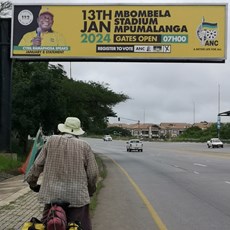
Mbombela to Barberton
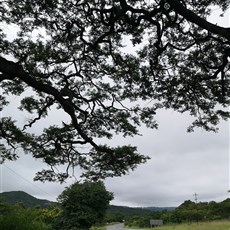
Mbombela to Barberton
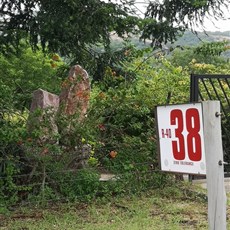
Mbombela to Barberton
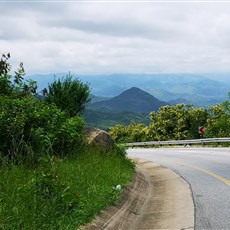
Mbombela to Barberton
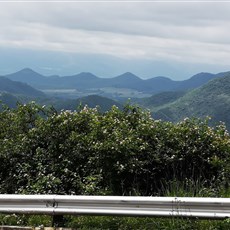
Mbombela to Barberton
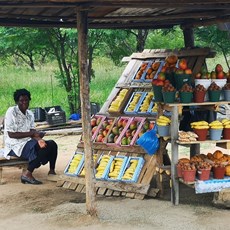
Mbombela to Barberton
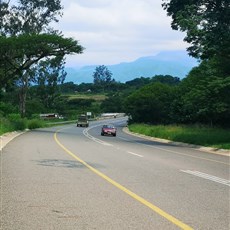
Mbombela to Barberton